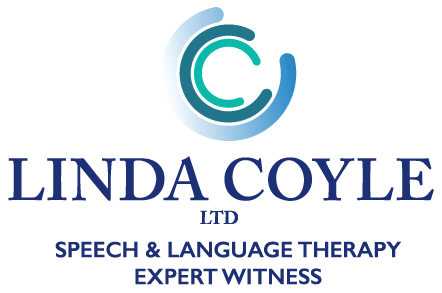People are presumed to have the ability, or capacity, to make decisions about their personal lives. When capacity is called into question, an assessment of this may be required. With the Assisted Decision Making Act (ADMA) 2015 the assessment of capacity has moved to a functional approach with capacity being determined for specific matters as opposed to it being an all or nothing situation. Communication is central to capacity assessments, so individuals with communication difficulties can be at a disadvantage as a result.
The current legal test for capacity involves a three stage approach, whereby a person is deemed to lack capacity if he or she i) has not comprehended and retained the treatment information; ii) does not believe the treatment information, and iii) has not weighed the treatment information, in particular, the alternative choices and the likely outcomes in the balance of arriving at the decision.
While this three step process may seem quite clear on paper, the reality of determining capacity in a person with a communication impairment can be a complex one, given that this test places a very high demand on language skills. Here I want to explore a number of issues which need to be considered. While in writing this I am focusing particularly on someone with a communication disability arising from an acquired brain injury (ABI), such as a head injury or stroke, it could also be similarly applied to adults who have a communication problem arising from other conditions such as Autism Spectrum Disorder or a learning disability.
Understanding language
The area of understanding is a complex one. Understanding is affected by the context in which we are speaking, in particular the amount of redundant information. For example, a person can understand if you are offering them a cup of tea by seeing you turn on the kettle or get a cup. Similarly, talking about familiar, everyday topics do not necessarily involve much processing of language. As such, much of our every day, ‘social’ language has a lot of redundance in it.
The demands on understanding language and on memory skills increase as we deal with information which is more complex or abstract. As sentences increase in complexity we need to access our ability to process the structure of the sentence and not just the understanding of individual words. Consider these sentences, “The teenager was pushed by the man,” or “The girl whom the boy hit stole the money.” In order to understand sentences such as these, we need to process the grammar, as we cannot predict them by the words in isolation. This area can be a challenge to people with a communication disability.
Over or underestimating understanding
Because we often infer a person’s understanding by how they respond, this can result in an under or over estimation of comprehension. For example, if a person nods and smiles appropriately, says “Yes,” when asked, “Do you understand?” or repeats back some of what you have just been said, it could seem on the surface that they have understood. Although have you ever experienced this yourself where you’ve feigned understanding to the speaker…maybe when being given directions (before the days of Google maps), or at a medical appointment?!
On the other side of the equation, someone who may have severe difficulties expressing themselves due to a neurological speech problem such as dysarthria or dyspraxia, which can occur as part of ABI. This may be characterised by slow, laboured, unclear speech and the listener may make the incorrect assumption that their understanding is affected.
So, the bottom line is that gauging understanding can be difficult.
Stress and understanding
When we are stressed, the stress hormone cortisol levels rise in our body. While this can be useful to get us ready to ‘fight’ or ‘flight’, too much of it is not good for us. If we are highly stressed, we can find it to think and reason effectively, and people with a brain injury can be much more vulnerable to this, as the brain gets flooded by this stress hormone. Taking into account that the lay person’s experience of dealing with legal issues and attending court is stressful, it is unsurprising that for a person with a communication impairment, the degree of overwhelm could completely impair their ability to understand what is being said to them and to retain it.
Problem solving and reasoning skills
A person with a communication disability may experience difficulties in using language to think and reason. They may find it difficult to hold different ideas in their head and evaluate them. Consider sentences such as, “Which of the following are…” or “This medication can cause these side effects, but the relative risk of relapse is greater with no treatment.” Equally, they may be using such effort to listen to and remember what has been said that they have no ‘headspace’ to be able to use that information.
While repeating the information to the person can help, it is not always beneficial, as if a person is feeling confused or stressed, the more that it is repeated, the less they take in. All is not lost however, as by adapting the information, such as using writing and diagrams, a person may be able to interpret quite complex information which they would not have been able to understand through the spoken word alone.
Retaining the information
People can experience memory loss following an acquired brain injury, particularly for more recent information. Memory issues can impact on being able to take in and process information, as well as the ability to retain what has been said for a period of time. Again, if we relate this to ourselves, have you ever gone into a worrying medical appointment, felt that you had taken in all that was said at the time, and walked out again not having remembered a word? This can be a daily reality for a person with ABI.
What can help
If you are going to be meeting with someone with ABI, here are some things that you can do to enable the interaction to go more smoothly.
Seek information from the person or their representative: If you are meeting with someone who has experienced an acquired brain injury, be aware that they may experience difficulties with communicating. Ask them directly about this to find out what helps and what does not help.
Review multi-disciplinary reports: While you may have a wealth of documentation in relation to a case, try to find an overview of a person’s profile so that you have a sense of what challenges they may experience with communicating.
Simplify your language: Try to avoid long and complex sentences and limit your use of legal jargon. (This can be a lot easier said than done!)
Check for understanding: Look out for any signs that the person has not understood. It may not be obvious. Acknowledge that some of what you are talking about is complicated. Stop and check for understanding.
Be aware of fatigue: Consider reducing the length of the meeting or introducing breaks.
Liaise with a speech and language therapist: If the person has been seen by a speech and language therapist, s/he can give you specific guidance regarding the nature of the person’s communication difficulties, and give you practical tips to support successful communication.
Use visual strategies: A visual strategy is any visual means that we use to support communication. Visuals are part of our everyday interactions, but are particularly important when reducing demands on language and memory. A visual strategy could be as simple as writing down the key points that you have made, or drawing out a time line.
Access an intermediary: An intermediary is a professional who assists people with communication disabilities in communicating effectively within the legal context. While they are not established as a service within Ireland, there is a growing need for adults to be able to access this support. Click here for more information about intermediaries (link to services-intermediaries page).Get training: I offer training to legal professionals in relation to how to effectively communicate with adults with a communication disability. (link to services-training page).


